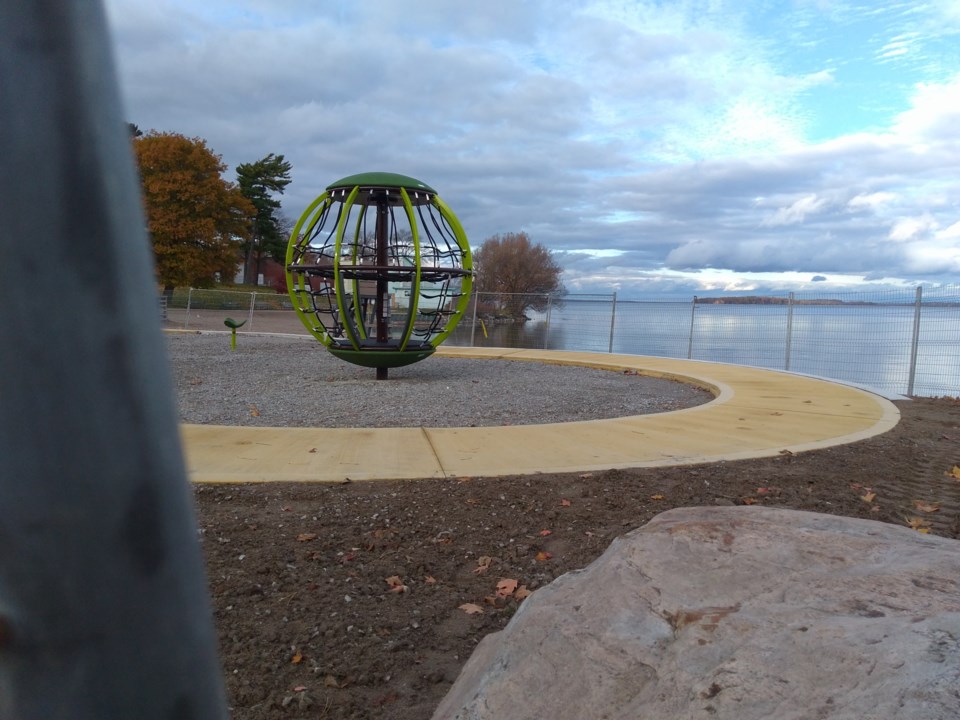Orillia’s budget committee - comprised of Mayor Steve Clarke and city councillors - have agreed to take $100,000 from the tax rate stabilization reserve to invest in parks equipment in an effort to ensure no local playgrounds are decommissioned.
The Accessibility for Ontarians with Disability Act (AODA) recently implemented changes that require all public playgrounds in Ontario to meet enhanced design standards by 2025.
“The enhanced standards will provide safe and accessible playgrounds but increased surfacing requirements and the additional pathways in particular mean the anticipated replacement costs have increased,” Ray Merkley, the city’s director of parks, recreation and culture told a budget committee meeting this summer.
Based on the report, to maintain current service levels, additional funding is required - to the tune of about $150,000 a year for the next four years.
If that money is not set aside, several playgrounds in local city parks would have to be removed.
In a year when council has committed to a tax freeze, the $150,000 is significant. As a result, Coun. Ted Emond suggested a compromise during this week’s operating budget deliberations and won support from the majority of his colleagues to contribute $100,000 this year with the hope of “catching up” in future years.
Emond noted the upgrades are mandated by the province and there is a tight timeline in place to meet the new guidelines.
“It’s not an option for us, therefore we need to do it,” said Emond.
“If we take a holiday this year (and choose not to contribute), we will, in effect, be reducing service levels,” he said in suggesting the compromise of $100,000.
“I think it’s reasonable approach (and) a reasonable use of the tax rate stabilization fund in these circumstances.”
The discussion sparked a debate about the budget process and how it infers an assumed level of service once capital dollars are spent.
And while the budget process is to be reviewed next year, Treasurer Jim Lang cautioned that potential procedural changes “will not create new sources of funds.”
He said “based on the ten-year capital forecast, there is not a lot of room to back off in a certain areas” and said reserves don’t have excess funding.
“You’re stuck with some hard decisions today and the next five years,” said Lang.
Amanpreet Singh Sidhu, who was hired as the city’s general manager of corporate services/city solicitor in July, said the debate begs a fundamental question about service levels.
He noted once a service level is determined, “it’s difficult to go back,” calling it “a gift that will not stop giving … that will demand its pound of flesh each year.”
He said since arriving, he has determined the city “has made a lot of investment in the recreation and culture sector” in recent years.
“At some point in time, council will have to consider that and say, ‘Do we need to hedge our bet,’ and place an equal number of eggs in separate baskets or keep on pushing ahead” with the current strategy.
He urged council not to focus on the dollar amount but a policy related to service level.
“If that’s the policy council formulates, staff has its instructions,” he said.
But he noted a $150,000 annual commitment represents .25 percent of the current tax levy.
“It is a considerable sum of money and there are always competing demands,” he said.
Coun. Tim Lauer said he was “OK with approving” the one-time amount, “with the idea, down the road, we may come up with a different” approach.
Emond also urged the mayor to write a letter to the province, asking them to extend the deadline to “accommodate financial pressures experienced through COVID.”
While Merkley supported that idea, he said a lot of the playgrounds requiring accessibility upgrades “are coming up for renewal anyway.”
Coun. David Campbell said Sidhu made an “excellent point,” saying council must more carefully consider ongoing operating costs of new projects.
“There is an expectation in the community we maintain that” level of service, he said, conceding “it’s pretty tough to remove equipment from one park over another.”
Ultimately, a majority of council agreed to earmark $100,000 from the tax rate stabilization reserve for the park equipment reserve.
Budget committee passed a $62.4 million operating budget and, by taking a total of $628,000 from that reserve, will ensure citizens do not face a tax hike in 2021. All decisions are subject to ratification at a special meeting of council Dec. 7.
The capital budget will be considered Monday and Tuesday.
